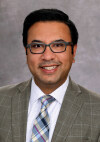Philip Greenberg
American Association for Cancer Research appoints president-elect
April 21, 2022

Philip Greenberg
PHILADELPHIA — The members of the American Association for Cancer Research (AACR) have elected Philip D. Greenberg, MD, FAACR, as the AACR President-Elect for 2022-2023. He will officially become President-Elect on Monday, April 11, 2022, during the AACR’s Business Meeting of Members, and will assume the Presidency in April 2023 at the next AACR Annual Meeting in Orlando, Florida.
Greenberg is the Rona Jaffe Foundation Endowed Chair and professor and head of the Program in Immunology, Clinical Research Division, Fred Hutchinson Cancer Research Center, Seattle. He is also a professor of medicine and immunology at the University of Washington School of Medicine. An internationally recognized pioneer in the field of cancer immunobiology, Greenberg has made groundbreaking contributions examining host T-cell responses to pathogenic viral infections. His work has led to crucial insights into the understanding of the mechanisms by which T cells distinguish tumor cells from normal cells and has fueled the advancement of adoptive T-cell therapy approaches in various cancers, including leukemia. His research also showed that CD4-positive helper T cells work both collaboratively and independently of CD8-positive cytotoxic T cells to eradicate tumor cells. This work has since been applied to the development of treatments for late-stage melanoma and leukemia.
As AACR President-Elect, Greenberg will work with the Board of Directors and the AACR membership, which includes more than 50,000 members in 129 countries, to further the AACR’s mission to prevent and cure all cancers through research, education, communication, collaboration, science policy and advocacy, and funding for cancer research.
“It is my honor and privilege to be afforded this chance to help shape the mission of the AACR during this time of extraordinary opportunities in cancer research,” said Greenberg. “The confluence of advances in many intersecting biologic and technologic fields offers great promise, and it will be a challenge to help harness these advances, enhance access by members of the research community to the new technologies, and translate this progress for the benefit of patients. Disparities in the engagement of minorities in both participation in the research community and the benefits of scientific advances have come to the forefront in recent years, and it will be a critical goal of AACR leadership to develop strategies that help remove these barriers.”
Greenberg is the Rona Jaffe Foundation Endowed Chair and professor and head of the Program in Immunology, Clinical Research Division, Fred Hutchinson Cancer Research Center, Seattle. He is also a professor of medicine and immunology at the University of Washington School of Medicine. An internationally recognized pioneer in the field of cancer immunobiology, Greenberg has made groundbreaking contributions examining host T-cell responses to pathogenic viral infections. His work has led to crucial insights into the understanding of the mechanisms by which T cells distinguish tumor cells from normal cells and has fueled the advancement of adoptive T-cell therapy approaches in various cancers, including leukemia. His research also showed that CD4-positive helper T cells work both collaboratively and independently of CD8-positive cytotoxic T cells to eradicate tumor cells. This work has since been applied to the development of treatments for late-stage melanoma and leukemia.
As AACR President-Elect, Greenberg will work with the Board of Directors and the AACR membership, which includes more than 50,000 members in 129 countries, to further the AACR’s mission to prevent and cure all cancers through research, education, communication, collaboration, science policy and advocacy, and funding for cancer research.
“It is my honor and privilege to be afforded this chance to help shape the mission of the AACR during this time of extraordinary opportunities in cancer research,” said Greenberg. “The confluence of advances in many intersecting biologic and technologic fields offers great promise, and it will be a challenge to help harness these advances, enhance access by members of the research community to the new technologies, and translate this progress for the benefit of patients. Disparities in the engagement of minorities in both participation in the research community and the benefits of scientific advances have come to the forefront in recent years, and it will be a critical goal of AACR leadership to develop strategies that help remove these barriers.”
You Must Be Logged In To Post A CommentRegisterRegistration is Free and Easy. Enjoy the benefits of The World's Leading New & Used Medical Equipment Marketplace. Register Now! |
|









